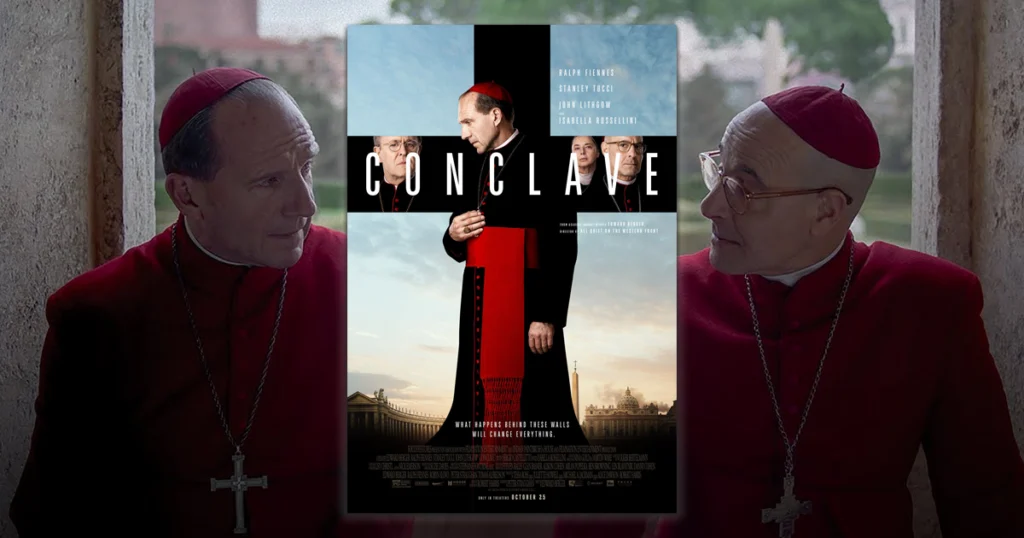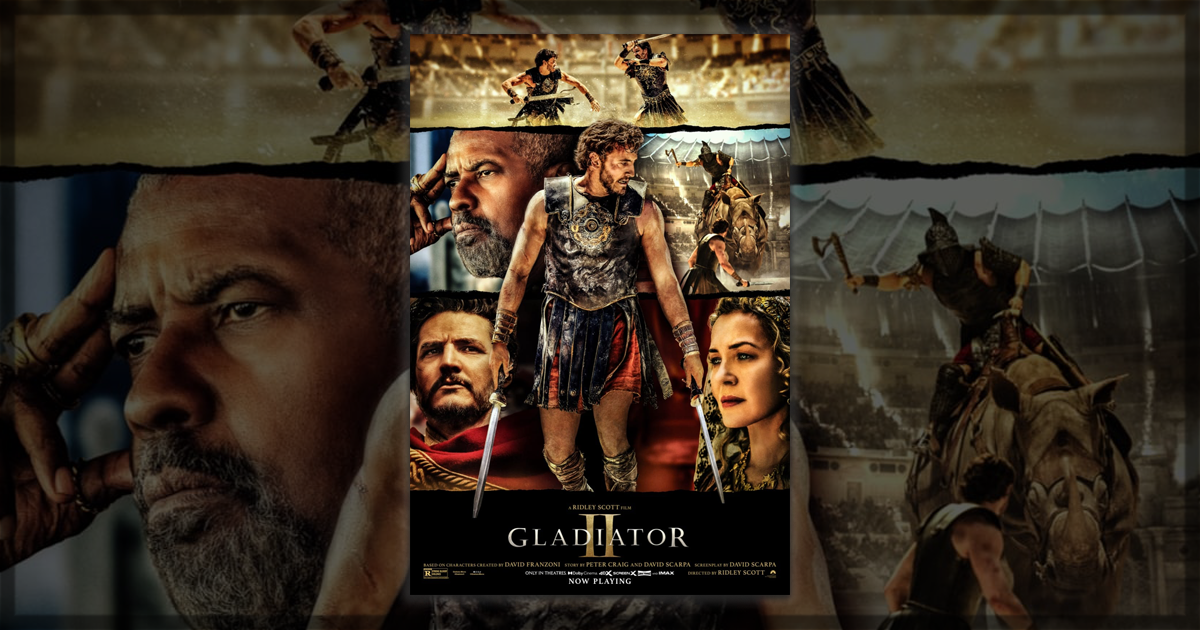It’s always wonderful to see an actor rise to the opportunity and become a great movie star, and there’s a moment late in Gladiator II where the switch visibly flips for Paul Mescal. He (and Daisy Edgar-Jones, who I have written about elsewhere) came out of nowhere in 2020’s lockdown with Normal People and have since become enormous stars, which is great to see. Ms. Edgar-Jones has gone the American blockbuster route, while Mr. Mescal has done more London theatre and indie films en route to being a critical darling. Despite his Oscar nomination for Aftersun, this is his first major headline role, and it’s pleasing to report that he carries the movie with ease, handling both the action and the quieter moments with his trademark consideration and stillness. The movie around this performance is not as good, but that almost doesn’t matter, because the excellence of Mr. Mescal’s performance and the reputation he has brought to the part disguises the movie’s true purpose. Something that subversive is more commonly seen in indie cinema, and for Mr. Mescal to upscale his career with this kind of a message makes it clear: he knows exactly what he is doing, and he likes it this way.
Hanno (Mr. Mescal) lives in the last unconquered city in Africa and is happily married to another soldier, Arishat (Yuval Gonen). When the Romans attack the city walls with their ships led by Acacius (Pedro Pascal, who has not done his best work here), Arishat is killed and Hanno falls into the sea, meaning he survives with barely a scratch. Along with other survivors, he is sold as a gladiator to a man named Macrinus (Denzel Washington, not so much chewing the scenery as eating it for breakfast, lunch and dinner) and immediately distinguishes himself in an arena battle against some drugged-up baboons. Thanks to his terrifying fighting spirit, he is brought to Rome to a party hosted by terrifying brother emperors Caracalla (Fred Hechinger) and Geta (Joseph Quinn, very good), where for the gala entertainment he must fight another gladiator to the death. This, and the poetry he recites, brings him to the attention of Lucilla (Connie Nielsen), the daughter of the emperor murdered in Gladiator and Acacius’s wife. And if you haven’t guessed any of the plot twists by now – although the trailers went some way to spoiling them – you’ve obviously never seen a movie before.
When Gladiator came out in 2000, it was trashed left and right by critics who thought it fell short of the swords-and-sandals epics of the 1960s, with their billions of extras and fervid, sexualized subplots. The question of what language everyone was speaking also kept coming up. Of course, it’s a classic now, and those criticisms have been utterly forgotten in today’s cinematic environment. Nowadays, plots are so pared back that the women named in the previous paragraph are virtually the only ones who speak out loud, and there’s no sex of any kind, barely even a kiss. The language question is ignored despite it being raised in dialogue, and all the scenes of fighting splendor are so clearly CGI it’s hard to tell what was a physical set and what was not. (Gladiator was also one of the first movies to use CGI for its crowd scenes, whereas so much is used here the movie has an uncanny valley effect from almost the first frame. How time marches on, eh.) The major setpiece here is a gladiator-on-gladiator battle in a flooded Coliseum where the fighters are on different full-size ships (this is a historical fact), and if they fall into the waters, they will be set upon by sharks (not so much, but it’s really cool).
But the simple fact of it is that none of that matters, because what director Ridley Scott and screenwriter David Scarpa, who worked together just last year on Napoleon, are interested in exploring is the current American moment. One where frankly insane leaders are uncontrollably bloodthirsty and no one dares stand up to their violence lest they become its first victim. It’s possible to climb very high in the power structure indeed if you are ruthless at manipulating your friends, never mind your enemies. Women are denied agency and told this is for their own benefit, and hope is a distant memory. The only way to survive is through violence and the moment you weaken, you die.
We’re not really meant to draw this conclusion, of course, but this inescapable political parallel gives a real kick to the fury Hanno expresses in the ring. (He has another name of course, but this review is trying to be spoiler-free.) The machinations elsewhere in Rome are handled expertly, and the ways in which Macrinus swiftly seizes his opportunities is just beautiful. The whole thing comes together like a child’s toy snapping into place and that means the simplicity of the childish outlines can be forgiven. Mr. Pascal’s weak performance, the absence of women, the strangely empty feeling of the plot despite the very busy setups and the unoriginality of the third act don’t matter, because this is an arrow aimed at the heart of the American empire. The only surprise is that Mr. Scott, who has directed four movies in the last five years despite being in his mid-eighties, and who apparently has plans for a third Gladiator movie coming together as we speak, has chosen to devote his dotage to channeling fury like this. But it, and his star, are absolutely equal to the moment, which makes this movie an unqualified triumph.
Plus there’s a brief sequence of Mr. Washington on a horse with a gold cape billowing behind him in the wind. If that won’t get you into a cinema, nothing will.
Gladiator II is now playing in theaters.
Learn more about the film, including how to buy tickets, at the official website.
You might also like…

‘Conclave’ Review: A Riveting Vatican Thriller Destined for Year-End Accolades

